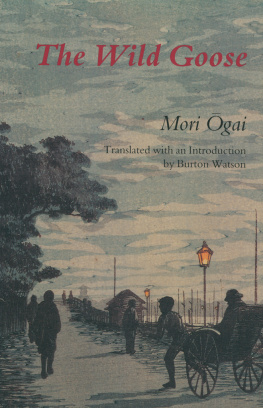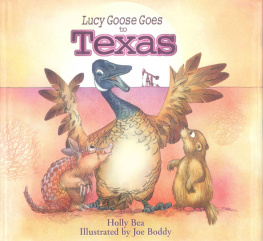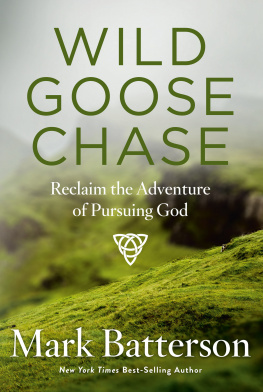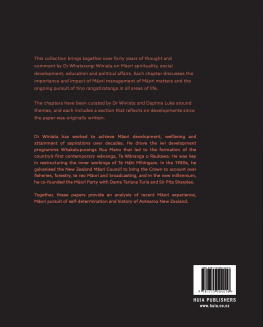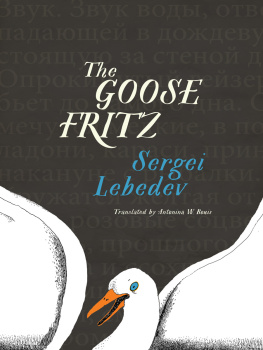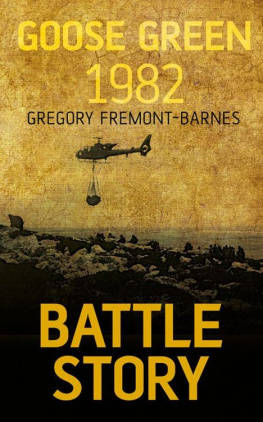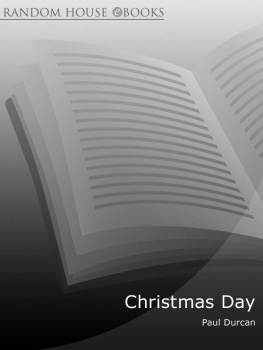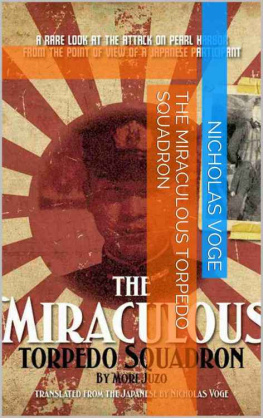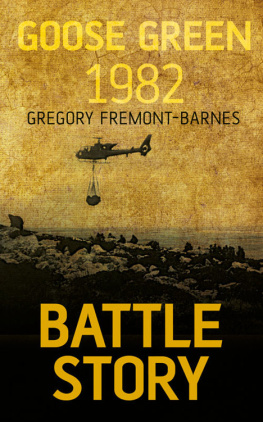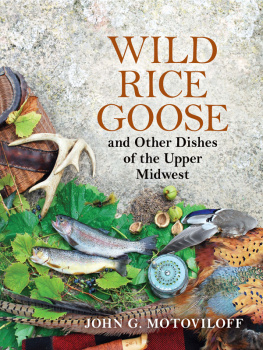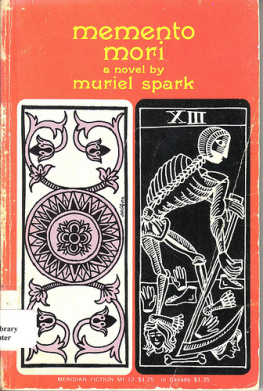Mori Ōgai - The Wild Goose
Here you can read online Mori Ōgai - The Wild Goose full text of the book (entire story) in english for free. Download pdf and epub, get meaning, cover and reviews about this ebook. year: 1995, publisher: University of Michigan Center for Japanese Studies, genre: Detective and thriller. Description of the work, (preface) as well as reviews are available. Best literature library LitArk.com created for fans of good reading and offers a wide selection of genres:
Romance novel
Science fiction
Adventure
Detective
Science
History
Home and family
Prose
Art
Politics
Computer
Non-fiction
Religion
Business
Children
Humor
Choose a favorite category and find really read worthwhile books. Enjoy immersion in the world of imagination, feel the emotions of the characters or learn something new for yourself, make an fascinating discovery.
- Book:The Wild Goose
- Author:
- Publisher:University of Michigan Center for Japanese Studies
- Genre:
- Year:1995
- Rating:4 / 5
- Favourites:Add to favourites
- Your mark:
- 80
- 1
- 2
- 3
- 4
- 5
The Wild Goose: summary, description and annotation
We offer to read an annotation, description, summary or preface (depends on what the author of the book "The Wild Goose" wrote himself). If you haven't found the necessary information about the book — write in the comments, we will try to find it.
The Wild Goose — read online for free the complete book (whole text) full work
Below is the text of the book, divided by pages. System saving the place of the last page read, allows you to conveniently read the book "The Wild Goose" online for free, without having to search again every time where you left off. Put a bookmark, and you can go to the page where you finished reading at any time.
Font size:
Interval:
Bookmark:

Authoritative and eminently readable... a translation worthy of the original.
Edwin McClellan
Sumitomo Professor of Japanese Studies
Yale University
I have long been fond of The Wild Goose. For more than a quarter of a century I have had an apartment at the top of the Muenzaka slope, where Otama lived and up and down which Okada had his evening walks. No house survives that is old enough to have been hers, but the Iwasaki wall still runs along one side of the narrow street, and people speak of her as if she were real and still among the inhabitants of the neighborhood.
There is a more important reason than this personal one for being interested in the work. The author is numbered among the giants of modern Japanese prose, and it is among his last exercises in realistic fiction, and probably the best. It is a lively, well-told story the ending of which, unlike endings to much Japanese fiction, is very effective, with the gratuitous happening that spoils Otamas chances for happiness. We must be grateful to have, at length, a full translation from the skillful hand of Burton Watson.
Edward Seidensticker
Professor Emeritus of Japanese Literature
Columbia University
The Wild Goose
Michigan Monograph Series in Japanese Studies
Number 14
Center for Japanese Studies
The University of Michigan
The Wild Goose

Mori gai
Translated with an Introduction by
Burton Watson
Center for Japanese Studies, The University of Michigan
Ann Arbor, 1995
Open access edition funded by the National Endowment for the Humanities/Andrew W. Mellon Foundation Humanities Open Book Program.
1995 Center for Japanese Studies
The University of Michigan
108 Lane Hall, 204 S. State St.
Ann Arbor, MI 481091290
Library of Congress Cataloging in Publication Data
Mori, gai, 18621922.
[Gan. English]
The wild goose / Mori gai ; translated with an introduction by Burton Watson.
166p. 23cm.(Michigan monograph series in Japanese studies; no. 14)
ISBN 093951270X.ISBN 0939512718 (pbk.)
I.Watson, Burton, 1925 . II. Title. III. Series.
PL811.O7G313 1995
895.6342dc20
9517764
CIP
This book was set in Bembo
Jacket and cover design by Shayne Davidson
The paper used in this publication meets the requirements of the ANSI Standard
Z39.481984 (Permanence of Paper).
Printed in the United States of America
ISBN 978-0-939512-70-6 (hardcover)
ISBN 978-0-939512-71-3 (paper)
ISBN 978-0-472-12746-7 (ebook)
ISBN 978-0-472-90141-8 (open access)
The text of this book is licensed under a Creative Commons Attribution-NonCommercial-NoDerivatives 4.0 International License: https://creativecommons.org/licenses/by-nc-nd/4.0/
Introduction
Mori gai (18621922), novelist, translator, playwright, and critic, was a leader in the Japanese literary world of the early twentieth century. He played a key role in shaping the language and direction of modern Japanese literature, and his works, particularly the novel translated here, have retained their appeal to the present, ranking now as classics of the period.
gai was born in 1862 in the feudal domain of Tsuwano in present-day Shimane Prefecture, the eldest son of a family that for generations had served as physicians to the lord of the domain. He received a traditional-style education in the Chinese classics and Chinese-style medicine and also took lessons in Dutch, the language through which Japan at that time acquired its knowledge of Western medicine. In 1872, shortly after the abolition of the feudal system, his family moved to Tokyo, where gai began the study of German. Two years later he entered the government school that in time would become the Tokyo University Medical Department, receiving extensive training in Western medicine from the German professors who taught there.
Following graduation, he entered the army and embarked on a lifelong career as a medical officer. In 1884 he was sent to Germany to study military hygiene, being among the earliest Japanese students to be sent abroad at government expense. He spent four years in Germany, pursuing his studies under the leading medical experts of the time.
In his student years in Japan he had taken a lively interest in Chinese and Japanese literature and had become proficient in the writing of poetry and prose in classical Chinese. While in Germany, he broadened his literary horizon by reading extensively in German literature and philosophy, as well as in the literature of other European countries. On his return to Japan in 1888, he devoted much time to introducing the works and ideals of Western literature to Japan through translations and essays, as well as to producing original works of fiction and poetry. In his medical career he contributed significantly to the field of military hygiene and nutrition, and in time he advanced to the rank of Surgeon General. As a writer and translator, he became one of the most admired and influential figures of his time.
The story translated here, Gan or The Wild Goose, published serially in 191113, is one of several works of fiction written around this time that draw upon gais personal experiences. In it he describes the Tokyo of his student days, and much of the interest of the story, both for the author and for his Japanese readers, no doubt lies in its nostalgic evocation of a bygone age, the city and its life as they were in the very early days of Japans era of rapid modernization.
Within its overall re-creation of the Tokyo of the 1870s and 1880s, the story introduces us to three quite distinct though interrelated worlds. First is that of the students in the Tokyo University Medical Department, gais own world as he remembered it, exemplified in the hero, Okada, and his friend and fellow student, who narrates the story: a world of young men living in cramped student boardinghouses, combing the secondhand bookstores for something of interest to read, practicing jujitsu, or serving as a member of the rowing team. Educated in the Chinese classics, ornamenting their conversation with allusions to Chinese literature, the students move with an air of ease and optimism, confident of their place in Japanese society and of the role they will one day play in the future development of their country.
A second and quite different world, masculine like that of the students but fraught with harsh realities of which the students are hardly aware, is that glimpsed through the figures of the moneylender Suez, and the heroines father, the bumbling and unlucky candy seller. This is the complex world of plebeian Tokyo, where shrewdness and native wit rather than birth and education are what advance ones lot. This world has its links with that of the studentsSuez got his start as a porter running errands for the students, and at the time of the story has advanced to the point where he can act as obliging financier to their youthful follies. But its pleasures are costly and hard-won, with none of the carefree nature of the students pastimes, and sudden reversal of fortune is an ever-present danger. In gais hands, both representatives of this world, the moneylender and the candy seller, emerge as subtly delineated characters, far removed in their complexity from the stereotypes of earlier Japanese literature.
Third of the three worlds, and that which seems to hold the greatest interest for the author and to elicit his most telling artistry, is the wholly feminine one inhabited by Otama, the young woman who becomes Suezs mistress; Suezs wife Otsune; the sewing teacher and her pupils; and the maids. These are the characters whose mental and emotional lives are explored in greatest detail and who most engage the writers sympathies. It is their world, with its threatening shadows, its blocks and hindrances, that generates the storys dominant symbols, the wild goose or geese of the closing sectionthe
Font size:
Interval:
Bookmark:
Similar books «The Wild Goose»
Look at similar books to The Wild Goose. We have selected literature similar in name and meaning in the hope of providing readers with more options to find new, interesting, not yet read works.
Discussion, reviews of the book The Wild Goose and just readers' own opinions. Leave your comments, write what you think about the work, its meaning or the main characters. Specify what exactly you liked and what you didn't like, and why you think so.

